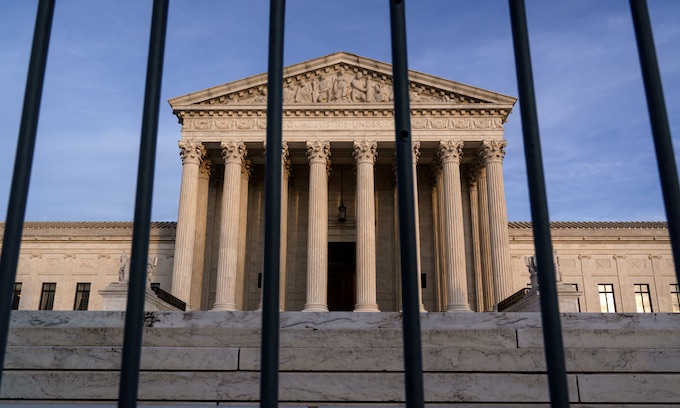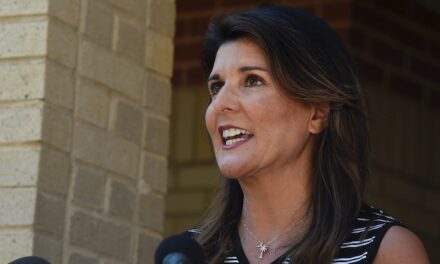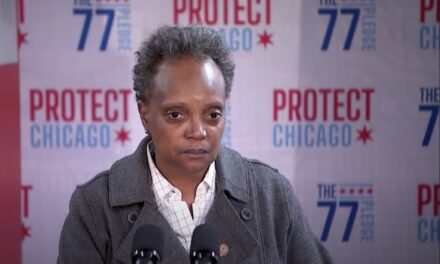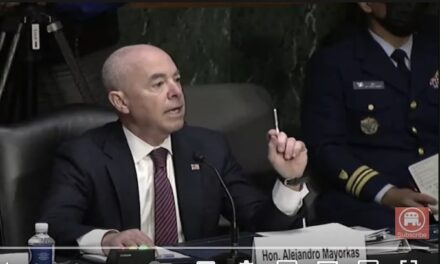The Supreme Court on Tuesday dismissed the Trump administration “public charge” immigration rule case after the Justice Department agreed to drop it.
President Joe Biden’s predecessor, Donald Trump, expanded the term “public charge,” under his administration’s Department of Homeland Security in August 2019, making it harder for low-income immigrants to obtain green cards to enter the country.
The expanded rule allowed officials to deny visas and green cards to individuals for their reliance on non-cash public assistance benefits such as food stamps, Medicaid, and government subsidized housing. Previously, the rule only applied to cash benefits.
Under the Trump administration, DHS appealed lower court orders finding expansion of the public charge term unlawful, but the Justice Department’s Acting Solicitor General Elizabeth Prelogar told the Supreme Court in a brief letter Tuesday that both sides have agreed the challenge should be dismissed.
“The Biden Administration has rightfully withdrawn the government appeals of appellate court decisions enjoining the Trump DHS’s public charge rule, clearing the way at last for this unlawful rule to no longer be enforced,” the Legal Aid Society, along with other litigants, including constitutional rights and immigrant rights groups, who had challenged the Trump administration’s public charge rule, said in a statement.
“Immigrant families can now access life-saving health care, food, and housing assistance for which they are eligible without fear that they will lose the chance to obtain lawful permanent residence, because the actions today mean that the harmful public charge rule will again be blocked.”
Judge George Daniels of the Southern District of New York had enjoined the public charge rule in October of 2019, but the Supreme Court stayed injunction on Jan. 27, 2020, allowing the rule to go into effect.
But the Second Circuit Court of Appeals affirmed the injunction last August, finding the the Trump administration’s public charge rule undermined Congress’ “unambiguous” intent.
The dismissal of the Trump administration appeal in the Supreme Court lifts the stay on the injunction in New York, Connecticut and Vermont.
The term “public charge” dates back to 1882, the same year the discriminatory Chinese Exclusion Act was enacted, barring mostly Chinese immigrants on the claim it “endangered the good order of certain localities.”
More than a century later, then-President Bill Clinton’s administration issued guidance that only cash welfare benefits or “institutionalization for long-term care” be considered for “public charge.”
The litigants against the Trump administration’s public charge rule said it was discriminatory, referring to it as “blatantly racist and xenophobic,” in a statement.
“The Trump rule erected an invisible wall in the form of a wealth test that discriminated against people on the basis of race as a condition for regularizing their immigration status,” the litigants against the rule said in the statement.
“This rule invited arbitrary, biased decision making. And because of the public charge rule, immigrant families have been living in fear of using essential benefits like healthcare, despite serving as frontline workers who have been among those hardest hit by COVID-19.”
The Trump administration had argued the rule would benefit taxpayers by reducing the number of immigrants who received federal assistance.
Copyright 2021 United Press International, Inc. (UPI). Any reproduction, republication, redistribution and/or modification of any UPI content is expressly prohibited without UPI’s prior written consent.
—-
This content is published through a licensing agreement with Acquire Media using its NewsEdge technology.



















Just more redistribution of Amrican wealth, now on an international, quicker bankrupting scale. Chinese get stgronger, America gets weaker and more in debt. This is what you get when you elect a party of American traitors, as the founders weep and spin in their graves, which if left to the conquering national socialists disguised as American Democrats, will be dug up and eradicated along with the rest of our heritage, and history. The will of the socialist media and thier puppets now run the nation, no longer the will of the people whose former national success is now being destroyed before our very eyes. America, “Unum E Pluribus” now just one out of many instead of out of many ONE.
AND YET another nail in the coffin, of WHY EVEN HAVE the damnable moronic ballsack court.
So much for the Rule of Law and the sorry Constitutionalists, Amy Coney Barrett, Kavanaugh et al. They have their security, money and are skipping off to their Gated Communities laughing at America all the way home.
John Roberts single handedly brought this entire SCOTUS down. Obama held the known fact that he is a pedophile and used it against him regarding Obamacare. He was at Epstein’s Island numerous times. He’s on the Flight Log List .
The other justices are accessories to his crimes. As they say, follow the dollar and it will lead you to the truth.
Makes me sad,i cheered for barret, kavenaugh and Gorusuch so hard, since it seems that they are JUST AS TRAITOROUS as roberts is…
Wouldn’t want the illegal invaders to have to support themselves, would we? Throw open the doors, and give them free everything, right slo joe? The quickest way to turn America into a third world ****hole.
“The Trump administration had argued the rule would benefit taxpayers by reducing the number of immigrants who received federal assistance.”
The puppet biden administration argued that the rule benefit taxpayers by INCREASING the 20 million of illegal immigrants who received federal assistance.” Paid for by YOU the taxpayer.
I’d love to see someone explain HOW IN GODS NAME< it benefits AMERICANS< by expanding how many ILLEGAL INVADERS get to use AMERICAN tax dollars…
Does SCOTUS stand for “Scum Traitors of the United States”? Illegal aliens are more important to the joke of a judicial system that we have, than we Americans are. On the doors of the Supreme Court, they should post: “Strangle the American Citizen”!
THESE DAYS, it certainly seem to stand for that.. SO FAR, out of the past 3 years, i think there’s MAYBE A HANDFUL of calls, they’ve made that are IN LINE with the constitution.
THE REST OF THE TIME< they're taking a big stinking dump on it.
The constitution says who are citizens and that citizens are entitled to Privileges and Responsibilities. The constitution does not say illegals are entitled to Privileges. And what are privileges ?? Good stamps and welfare and public housing and Medicade. ??? This must be too hard for Biden and the supreme court to understand.